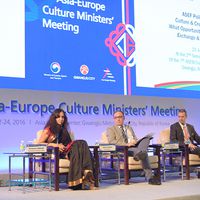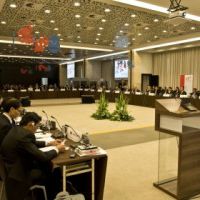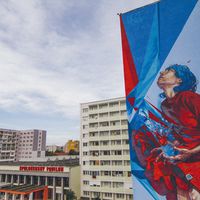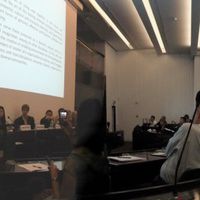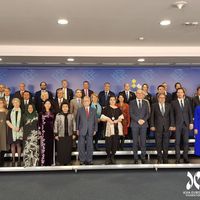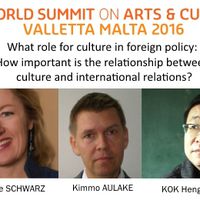7th ASEM Culture Ministers’ Meeting I Key Outcomes
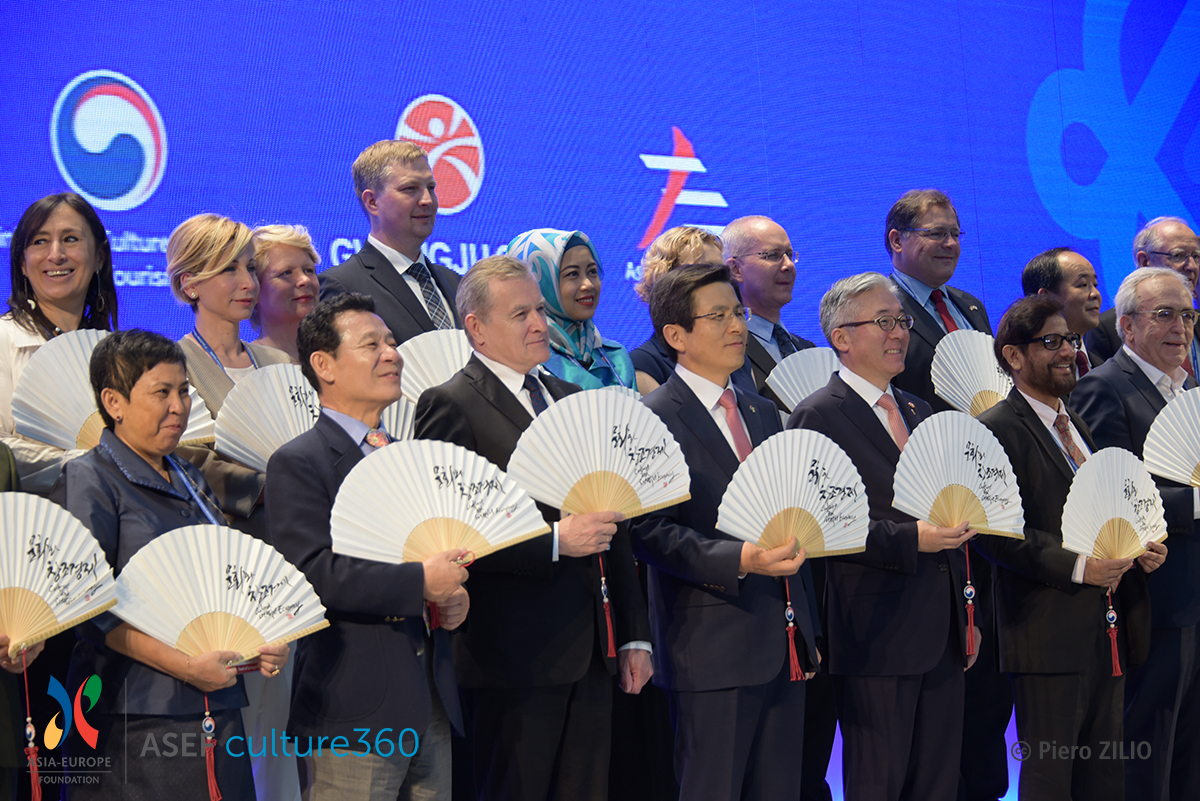 [caption id="attachment_59649" align="aligncenter" width="300"]
[caption id="attachment_59649" align="aligncenter" width="300"]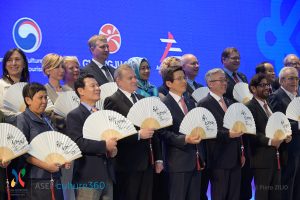 150 high-level cultural officials including 8 Ministers in Gwangju for the ASEM Ministerial meeting © Piero Zilio[/caption]
150 high-level cultural officials including 8 Ministers in Gwangju for the ASEM Ministerial meeting © Piero Zilio[/caption]Exchange of national good practices in the creative industries and exploration of international collaboration opportunities were the focus of the 7th ASEM Culture Ministers’ Meeting (ASEM CMM7) that took place this June in Gwangju, Korea.
Over 150 delegates representing 44 ASEM member countries, the European Union, the ASEAN Secretariat and the Asia-Europe Foundation (in its role as the only permanently established institution of ASEM) attended the 3-day gathering at the newly-inaugurated Asia Culture Centre.
Key outcomes of the Ministerial meeting
Korea, a regional leader in the creative industries, followed the previous host, the Netherlands in placing this topic high on the ASEM cultural agenda. Harnessing the potential of the creative and cultural industries for economic growth, job creation and national branding was strongly emphasised, while also acknowledging the need for context-specific national and local policies. Identifying ways and means whereby heritage resources and the creative industries can be mutually reinforcing was a particularly important area of discussion at the meeting.
The need to continue facilitating networking and knowledge exchange among cultural professionals from Asia and Europe was strongly emphasised by the Ministers. International collaborations in areas such as entrepreneurial skills development and financing models were particularly emphasised. A report on the Ministerial meeting can be downloaded here.
Civil society inputs to the Ministerial meeting
ASEF complements the intergovernmental dialogue at Asia-Europe Meeting (ASEM) by engaging civil societies of both regions. In line with this mandate, an ASEF Policy Panel was organised at the Ministerial meeting on 22 June.
Titled Culture & the Creative Economy: What Opportunities for Asia-Europe Exchange & Collaboration?, the panel brought together three cultural experts: Dr. Amareswar GALLA, Executive Director, International Institute for the Inclusive Museum; Ossi LUOTO, CEO, Europe-Asia Roundtable Sessions (EARS); and, Jérémy SEGAY, Specialist in Asian cinema & Audio-visual Attaché, Bureau Français. Three key messages were offered by the panellists to cultural officials attending the Ministerial meeting. First, that Asian and European governments must support the creation, distribution and consumption of diverse cultural content (be it films or books) through enabling public policies. Secondly, care must be taken to ensure equal partnerships between Asian and European artists and organisations within international collaborations. Thirdly, peer-to-peer networking as well as intergenerational mentoring must be reiterated through face-to-face exchanges, which in turn calls for sustained mobility funding for cultural professionals. The full report of the ASEF Policy Panel can be downloaded here.
Watch the highlights of the ASEF Policy Panel below
https://vimeo.com/174179108/d14da27226
ASEM enters its third decade
The biennial Culture Ministers’ Meetings of the Asia-Europe Meeting (ASEM) was first launched in Beijing in 2003. Since then, high-level representatives of Culture Ministries in Asia and Europe have regularly met to exchange good practices and promote multilateral cultural cooperation among member countries. The last meeting was held in the Netherlands in 2014. The next meeting will take place in Bulgaria in 2018.
[caption id="attachment_59652" align="aligncenter" width="300"]
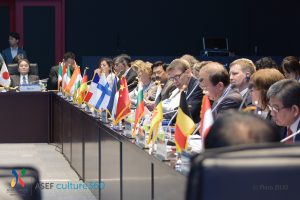 ASEM Culture Ministers’ Meetings have taken place every 2 years since 2003 © Piero Zilio[/caption]
ASEM Culture Ministers’ Meetings have taken place every 2 years since 2003 © Piero Zilio[/caption]The 7th gathering of Culture Ministers in 2016 comes as ASEM commemorates its 20th anniversary. Founded in 1996 as an exclusive Asia-Europe dialogue forum, ASEM has grown from 26 to 53 partners over the last two decades. During this period, it has - significantly - retained its informal, non-institutional nature, the importance of which was reiterated in the Ulaanbaatar Declaration on ASEM into the Third Decade (15-16 July 2o16, Mongolia) issued by Heads of State and Governments of all ASEM partners.
As it enters its third decade, ASEM member governments have just recently reiterated their commitment to deepen Asia-Europe connectivity through a “multilayered co-operation” in which political dialogue and economic co-operation are necessarily complemented by broader people-to people exchanges (including through the work of the Asia-Europe Foundation). This approach, it is hoped, will serve to reiterate ASEM’s role as a “catalyst for effective multilateralism”, while continuing to promote equal partnerships between the Asia and Europe.
The full panel discussion can be viewed here:
ASEF Policy Panel on Culture & the Creative Economy at 7th ASEM Culture Ministers' Meeting [long version]
Follow the conversation at:
#ASEFculture #ASEMCMM7
@culture360_asef
Similar content
from - to
22 Jun 2016 - 22 Jun 2016
14 Jun 2011
By smangano
15 Jun 2016
29 Mar 2012
By Preeti Gaonkar & Kerrine Goh
19 Oct 2018
posted on
19 Sep 2016

